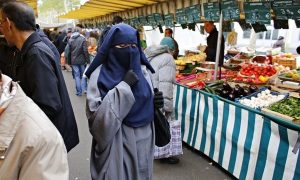Belgium, in its well-intended welcome of newcomers from the Middle East, is now facing a persistent terrorist threat and a “wave of jihadism”, according to a new report published by the Belgian State Security Service (VSSE) on November 30. The main reason for these recent acquisitions, notes the report, is the ongoing Islamic radicalization of inmates in Belgian prisons and the risk of terrorist convicts engaging in terrorist acts once they have served their sentences and are back out on the street.
“In the coming years,” states the report, “the VSSE will be brought to pay particular attention to monitoring detainees convicted of acts of terrorism [after they are] released into freedom”. The authors of the report do not reveal how many radicalized prisoners there are in Belgium; only that in September 2018, there were 130 inmates sentenced for terrorism or “in preventive detention in the context of a terrorism record”.
“Taking into account the persistent recidivist tendency among former terrorism detainees, never mind radicalized common criminals, Belgium will continue to face a latent terror threat for some time to come,” the report lets drop.
The Belgian intelligence services do not appear to consider Islam a factor in generating Islamic terrorism. Instead, the report offers up other explanations why Islamic terrorism is committed internationally: “… Real or perceived discrimination, political instability, poor economic conditions, unemployment, level of development.”
Benjamin Herman, for example, was a criminal who converted to Islam in prison; then – despite being on a state security list as a suspected radical – last May, while out on a 48-hour leave from prison in the Belgian city of Liège, he murdered three people, including two police officers. He spared one woman, apparently because she was Muslim. Herman then shot and wounded four more police officers while shouting “Allahu Akbar”. Interior Minister Jan Jambon said at the time of Herman’s possible motives:
“There are signs that allow us to speak of radicalization in prison. But it can also be because he had no prospects anymore in our society, as he also committed a murder the night before.”
In 2017, a leaked confidential report remarked that there were 51 organizations in Molenbeek – an area in Brussels that has been called the “Jihadi capital of Europe“, and that has fostered or harbored various jihadists, including several who were behind the 2015 Paris attacks.
Read more HERE
Ask me anything
Explore related questions





